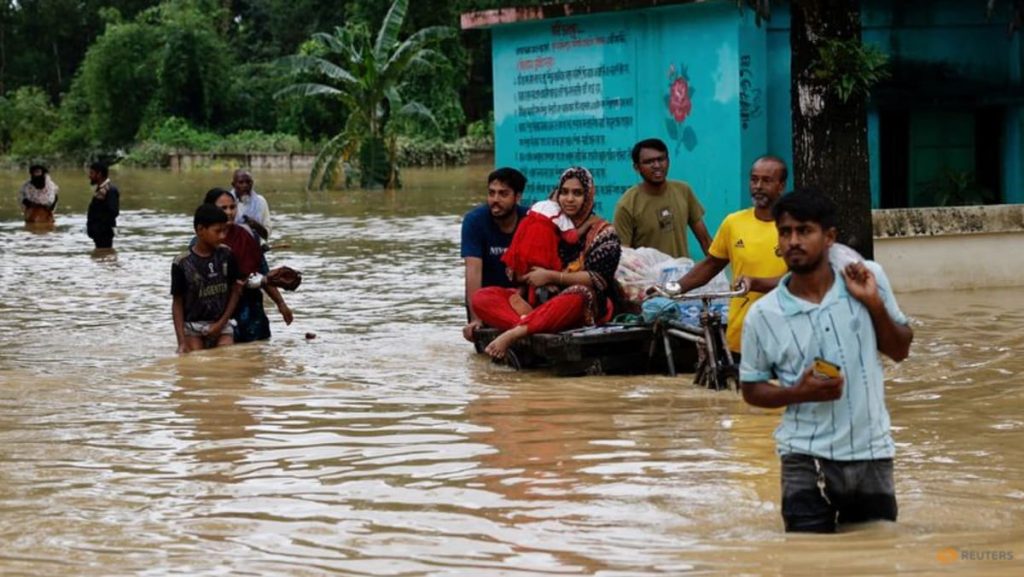The Directorate General of Health Services reported that almost 5,000 individuals had been hospitalized within the previous 24 hours for various health issues including diarrhoea, skin infections, and snake bites. These health concerns are believed to have been exacerbated by heavy rain in the capital city of Dhaka, which flooded many areas and caused significant traffic disruptions. The rain also resulted in the submergence of roads in knee-deep to waist-high water, making it difficult for vehicles to navigate the waterlogged streets.
The heavy rain and subsequent flooding have had a significant impact on the agricultural sector, with crops worth 33.5 billion taka, equivalent to $282 million, being damaged. This has affected over 1.4 million farmers, as per a preliminary evaluation by the agriculture ministry. The economic repercussions of this damage are likely to be substantial, as farmers rely on their crops for income and sustenance. The flooding has also disrupted transportation and access to markets, further compounding the challenges faced by farmers in the affected areas.
It is evident that climate change has played a role in exacerbating the flooding and associated impacts in Bangladesh. A 2015 report by the World Bank Institute highlighted that 3.5 million individuals in the country were at risk of annual river flooding, a figure that has likely increased in recent years due to the effects of climate change. The changing climate patterns pose a significant threat to the livelihoods and well-being of millions of people in Bangladesh, particularly those who are already vulnerable due to poverty and lack of resources.
The United Nations Children’s Fund (UNICEF) has raised concerns about the impact of the flooding on children in Bangladesh, noting that two million children are at risk due to the country’s most severe flooding in three decades. In response to this crisis, UNICEF has launched an urgent appeal for $35 million to provide essential supplies and support to those affected by the floods. The organization is working to ensure that children and their families have access to clean water, food, shelter, and healthcare services in the midst of this humanitarian emergency.
Emma Brigham, Deputy Representative of UNICEF Bangladesh, emphasized the devastating impact of climate change on the lives of millions of children in the country. She highlighted that year after year, natural disasters such as floods, heatwaves, and cyclones are taking a toll on children’s well-being and future prospects. The changing climate is altering the landscape of Bangladesh, posing new challenges and risks to its population, particularly its most vulnerable members. UNICEF’s response to the current flooding crisis underscores the urgent need for coordinated action to address the immediate and long-term impacts of climate change on children and their communities in Bangladesh.
In conclusion, the recent flooding in Bangladesh has had far-reaching consequences for the health, livelihoods, and well-being of millions of people, particularly children and farmers. The devastating impact of climate change is evident in the increasing frequency and severity of natural disasters in the country, underscoring the urgent need for collective action to address these challenges. UNICEF’s response to the current crisis highlights the critical importance of providing immediate support and resources to those affected by the floods, while also advocating for long-term solutions to build resilience and mitigate the impact of climate change on vulnerable populations in Bangladesh.


